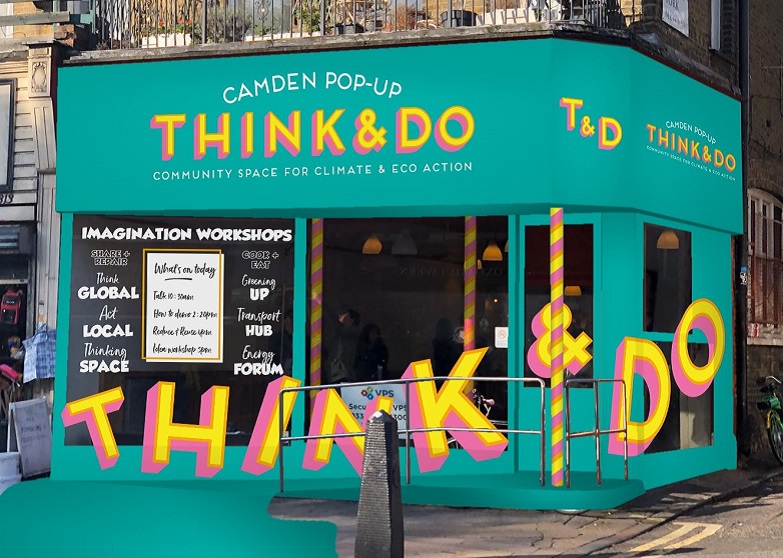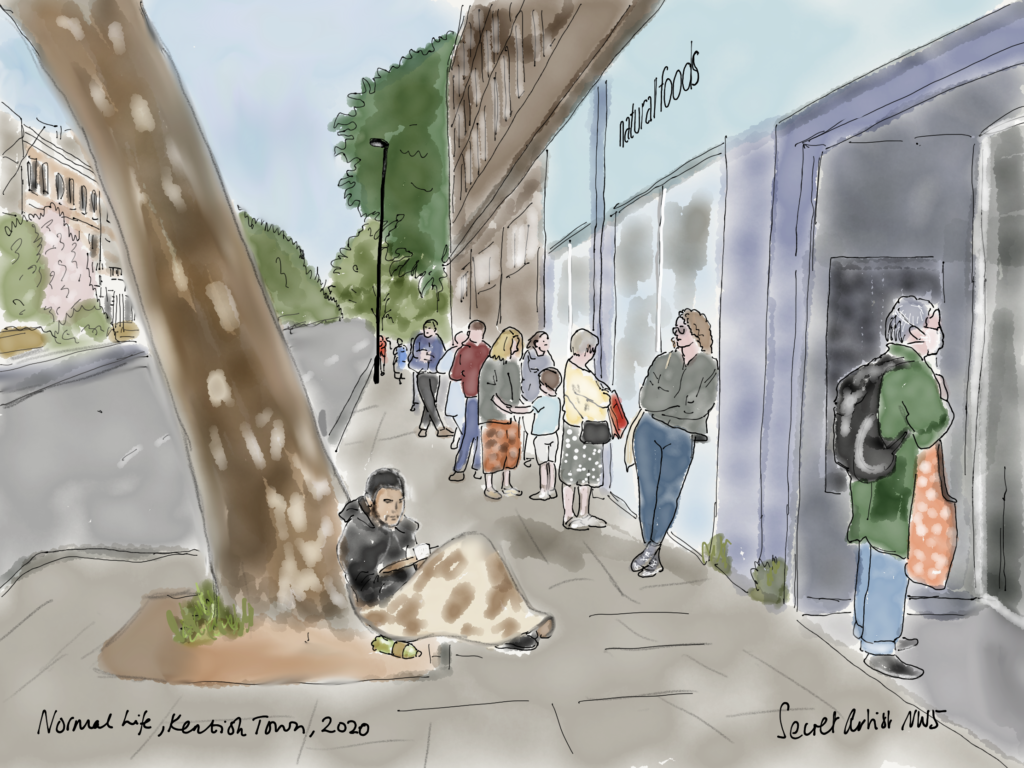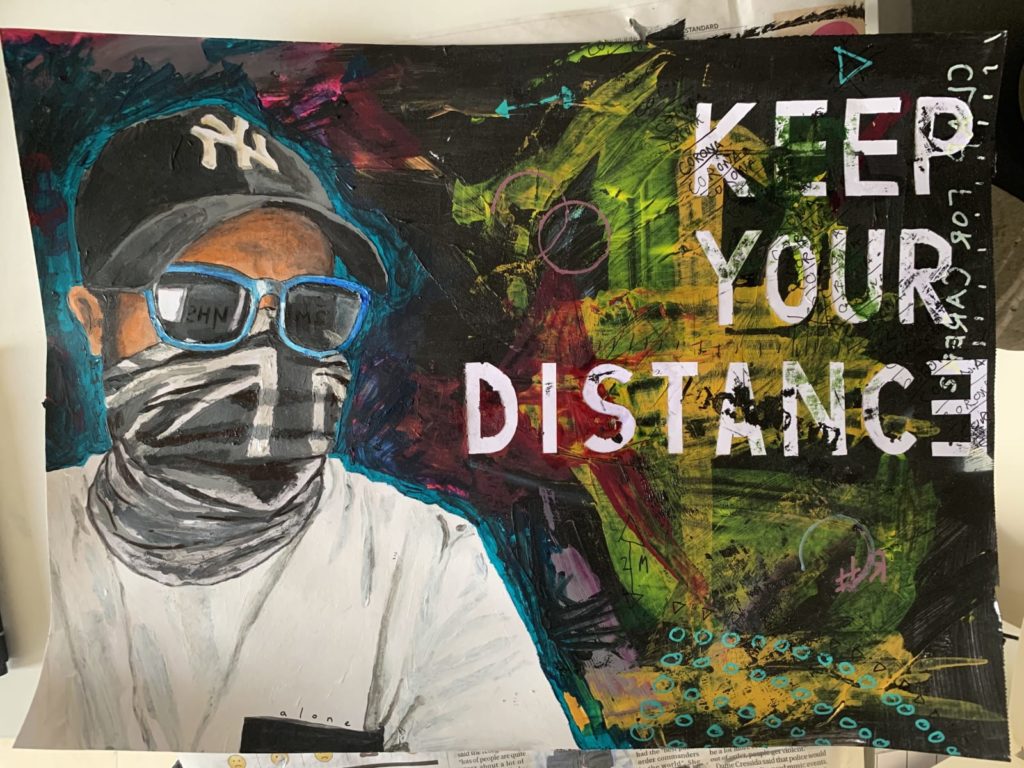Before COVID-19 struck, despite high overall employment, many of Camden’s citizens were not benefitting from the growth they saw around them. We had high levels of in-work poverty and insecure work, a gap in the rate of employment between those with a health condition or disability and those without, and a lower employment rate for residents from Black, Asian, and other ethnic backgrounds.
Structural economic challenges have fed into the borough’s wider social challenges too, with a child poverty rate of 43%, compared to a London rate of 37%, and 1 in 4 Camden children claiming free school meals.
It has exposed many of these structural problems and intensified them. It has shown the true cost of an unequal society and economy.
Yet it has also shown the power of community and their ability to come together and lead change.
The Camden Renewal Commission brings together the talent and energy of the many people and organisations that make up Camden to tackle inequality at its source. The core idea behind the Commission is that by working together on ambitious missions (more about what they are later) we can create radical change and that we need to renew, not simply recover.
To help kickstart this work, the Council and UCL’s Institute of Innovation and Public Purpose (IIPP) invited a dynamic and diverse group of people who live and or work in Camden to bring their expertise to tackle bringing place-based renewal to an area with significant social and economic inequalities, whilst supporting the transition to a zero-carbon economy by 2030. They are working with the Camden community, through a wide programme of social action, to develop a policy platform and practical solutions that create a fair, sustainable economy.
It is recognised that this is a bold and complex ambition that will take time and collective commitment. And to succeed, it needs to be rooted in the principles of citizen-voice, community action and mission-led innovation; one that will both be guided by, and help to define, policy and the systems that create change in the borough.
Citizen voice
The Camden community has demonstrated ingenuity and resilience in the face of COVID-19 and have shown time and again that they have the knowledge and energy to mobilise real change.
Lasting, purposeful change happens when people with varied expertise, backgrounds and perspectives come together to chart a new way forward. The public sector can’t do this on its own – and we’ve seen the power of working in close partnership with our community.
Take Camden’s pop-up Think & Do community space for climate and eco action, for example. It encourages and empowers people in Camden to take part and run activities that tackle the climate crisis. The Commission aims to help build on the strengths of this approach, going further to collaborate across our community, in pursuit of achieving ambitious missions together.

Already, we have been listening to resident stories and organisations working with those most affected by the Covid crisis – we have heard challenging stories of loneliness and food poverty, but also of human compassion and mutual aid. These stories form part of the robust evidence base that we’re collecting: from data on income and jobs, to the state of the environment, to health and wellbeing in the borough.
Mission-led innovation
Radical change needs original ideas and new methods of working. The Commission is using a missions-based approach to innovation, and we are fortunate to work in partnership with the IIPP at UCL as experts in this field to help galvanise our efforts.
The thinking goes like this: society’s grand challenges are by their nature big, bold, difficult and complex. To achieve them, they need to be broken down into pragmatic steps or ‘missions’ that frame the stimuli needed for innovation.
It shifts the focus away from sectors and on to the problems that matter to all. Missions purposely don’t stipulate how to achieve success, given one person or group can’t hold the answers to such complex challenges on their own.
We hope it will also help broaden leadership to our partners, democratise decision-making and mobilise activity across the borough – with residents, voluntary and community groups, and the business community.
Our draft missions are:
- By 2030, those holding positions of power in Camden are as diverse as our community
- By 2025, every young person has access to economic opportunity that enables them to be safe and secure
- By 2030, everyone eats well every day with nutritious, affordable, sustainable food
- By 2030, Camden’s estates and streets are creative and sustainable
Radical change is not only about the new
It’s an old cliché, but ‘not reinventing the wheel’ is less about resisting new ideas, and more about reminding us to maximise the existing knowledge, partnerships and work that is already underway.
The Commission has reinvigorated many of our existing programmes, such as testing policy on Universal Basic Services on digital and transport, the Camden Climate Action Plan, the Good Work Camden programme and a High Streets Taskforce.
The Council’s Inclusive Economy team were already co-designing services to create an economy in which people have access to good work and growth, in step with a commitment to de-carbonise by 2030. Inclusive economy means rethinking the purpose of economic development to further involve citizens and capture the benefits of growth.
And there’s some compelling examples of delivery too.
Good Work Camden – a new programme that supports more residents into good work and drive long-term reform – was a response to what we heard from residents. It’s creating ways of delivering employment support rooted in neighbourhoods, and as a result, over a thousand residents are projected to be supported into good work in the next couple of years.
The hyperlocal Good Work Camden Job Hubs, for example, take the time to build relationships and trust with residents seeking work, and provide holistic support that is so often missing.
This whole approach is anchored in the Council’s commitment to early intervention and prevention, recognising that getting people into work that is right for them can be instrumental in achieving other outcomes around health, wellbeing and happiness.
The Commission missions are designed to capitalise on what’s working. Through renewal, new systems can combine with existing ones to shape an economy that is inclusive and sustainable.
It’s a radical vision for a borough ready to take on the challenge of renewal.
By Nick Kimber, Director of Corporate Strategy and Policy Design at London Borough of Camden



